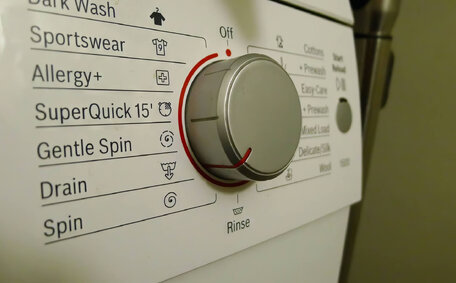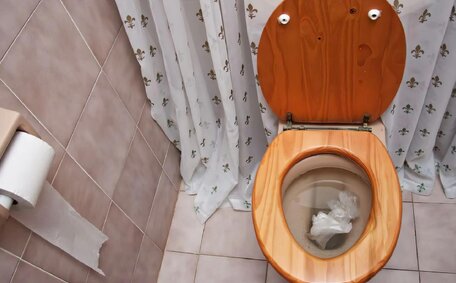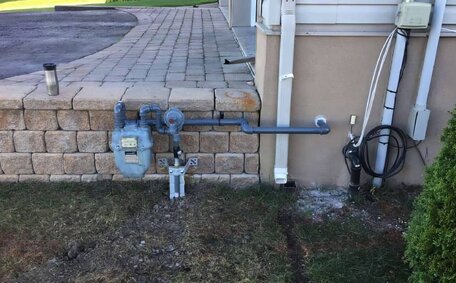The Dangers of Chemical Drain Cleaners
If you’ve already used chemical cleaners and are experiencing issues, it may be time to call a plumber to assess potential damage to your plumbing system. Chemical drain cleaners, often containing harsh substances like lye or sulfuric acid, can corrode pipes over time—especially those made of cast iron, steel, or copper—resulting in leaks and potential ruptures.
In contrast, enzymatic drain cleaners are milder, breaking down organic material without generating excessive heat or hazardous fumes. Some jurisdictions limit the use of chemical drain cleaners to mitigate environmental risks from such potent substances.
Chemical cleaners may prove ineffective against clogs from hair soap scum and other typical obstructions. Natural homemade solutions can be a safer alternative to clear hair clogs without strong chemicals.
Alternatively, opt for a safer approach by pouring one cup baking soda followed by vinegar down the drain, a natural combination that’s a common drain cleaning solution and helps prevent future clogs. You can also try pouring a pot of hot water down the drain weekly to help clean drains and keep them running smoothly.
Calling a professional plumber is recommended for stubborn blockages, like those caused by soap scum, as they have specialised tools to safely remove obstructions.
How They Can Damage Your Pipes
Frequent or recurrent use of chemical drain cleaners can inflict severe and lasting damage to pipes. The caustic ingredients can corrode pipes and supply tubes, akin to the damage from improperly sweating copper pipes, especially with prolonged exposure. Older homes with ageing or fragile plumbing are especially susceptible to how much a blocked drain can disrupt the system.
Signs that indicate chemical corrosion include new leaks, unusual sounds when water is running, reduced water pressure, and burst pipes. If you’re dealing with stubborn clogs, chemical drain cleaners may seem like a quick fix, but they can cause more harm than good without understanding your home’s plumbing materials and configuration, thereby posing unnecessary risks.
Rust accumulation can be tackled with a cup baking soda solution in your pipes as a preventive measure. The damage often starts small but just like a cup of baking soda reacts when combined with vinegar, it can end up expanding if unchecked.
Instead of attempting risky DIY chemical drain cleaning, think about what you’re pouring down your drain and consider a gentler homemade liquid drain solution to efficiently clean your drains or have a professional inspect your pipes. They can assist by using methods like high-pressure water jets, long flexible augers, or careful manual drain remove techniques to clear blockages inside your pipes; learn more about preserving your plumbing system. This can help prevent both immediate drain issues and costly pipe repairs down the road.
Using the Wrong Plunger
Using the wrong type of plunger when trying to unclog blocked drains can actually make the clog worse and potentially damage your pipes. Flanged plungers, also called toilet plungers, have a funnel-shaped rubber cup with a flange or ridge around the edge to efficiently reach further down drain.
Each plunger type is designed to create a precise seal and generate sufficient suction to dislodge blockages. Cup plungers, on the other hand, have a more bowl-shaped cup without a flange. They are engineered for flat surfaces such as sinks or tubs, showcasing different types meant for varied applications.
A cup plunger often fails to unclog toilets due to its inability to create an effective seal in a toilet bowl.
Using a toilet plunger on a sink can be equally ineffective and keep your risk high for scratching the finish or pushing out clogs further down the pipes. In case of severe clogs, skip DIY plunging that might worsen the situation. Instead, call a professional with proper equipment to address the blockage without harming your plumbing.
When to Use a Sink Plunger vs Toilet Plunger
Sink plungers and toilet plungers serve different purposes.
Utilise a sink plunger specifically designed for flat surfaces such as kitchen and bathroom sinks, bathtubs, and shower drains. Its cup-shaped end can create a tight seal on flat surfaces like shower tub bases to effectively dislodge clogs. Conversely, ensure that the toilet plunger is used for unblocking toilets or floor drains. Its flanged rim and funnel design seals to the toilet bowl or drain opening to powerfully break up blockages.
To avoid damaging fixtures or exacerbating clogs, call your trusted plumber if you’re uncertain which plunger type to use for your drain issue. For severe or recurring clogs, call for professional drain cleaning services rather than taking a DIY approach. They have specialised drain snakes and high-pressure water jets to clear blockages without damaging your plumbing system.
Make sure to use drain tools correctly, avoiding the use of the wrong plunger type that not only reduces your chances of success but may also damage your pipes.
Poking Objects Down the Drain
A more effective strategy is to master the cleaning of popup stoppers instead of inserting inappropriate objects into a drain, risking further complications. Using knives, wire hangers, sticks, or other inappropriate tools can lead to them breaking off inside pipes, becoming irretrievable, compacting debris, scratching pipes or even causing punctures. This often worsens jams and you should know how pipe damage can escalate over time.
A far better approach is contacting your plumber to properly assess the blockage and employ appropriate methods for your specific drainage system. High-pressure jetting, manual rodding, or careful augering with specialised drain snakes can clear obstructions without harming pipes.
Should you suspect a deep obstruction in your drains, refrain from untrained removal efforts. Professionals have the right tools, including specialised cameras, to locate and retrieve stuck items without damage. Poking into the drain with objects to remove blockages yourself risks pushing them in deeper or fracturing pipes.
Why It Causes More Harm Than Good
Such are the careless mistakes DIYers often make, which can turn a simple unclogging task into a long-term plumbing dilemma. Using wire hangers, sticks, knives, or other household objects risks getting items stuck, scratching pipes, or pushing clogs deeper, which can cause more issues. It can fracture drainage pipes over time or compact debris to create full blockages.
Similarly, liquid drain cleaners with corrosive ingredients risk eating away at pipes, often causing irreversible damage to your plumbing. Even plunging incorrectly with the wrong type of plunger makes clogs worse.
Lacking the having right equipment and expertise, making cleaning mistakes during your own DIY drain cleaning frequently exacerbates issues and doesn’t effectively clear out the blockage. A professional plumber can tackle the job without spare parts, utilising specialised snakes, augers, high-pressure jetting tools, and cameras to precisely locate and clear blockages without causing harm. They can also determine the cause of the drain blockage, whether it’s tree roots, collapsed pipes, or other major problems that no amateur attempts can resolve.
Prevent future drainage issues through proactive maintenance and careful consideration of what goes down your drains. Engage a licensed professional such as Padstow Plumbing for accurate diagnosis and resolution of persistent clogs. Padstow Plumbing employs techniques and equipment to safely clear your drains without inflicting damage.
Attempting DIY Hydro-Jetting
DIY hydro-jetting is fraught with risks, including potential flooding and grave damage to your pipes. Hydro-jetting uses high-pressure water up to 5000 PSI to scour and dislodge drain blockages. Without the right nozzles and professional equipment, using a garden hose or pressure washer is unlikely to clear blockages and could lead to severe damage.
Instead, the intense water pressure can potentially burst pipes, the most common aftermath when mishandled, blow out gaskets and joints, chip away pipe interiors if aimed improperly, or accidentally direct pressurised water into wall cavities to cause water damage. Pipes made of older materials like cast iron are especially vulnerable.
There are certain high-powered solutions like hydro-jetting that should be left to licenced professionals, as these methods address common drain line blockage issues and require commercial-grade jetters. They strategically control water pressure and nozzle direction based on drain line size and configuration to avoid damage. DIY hydro-jetting with unsuitable residential equipment can lead to costly drainage repairs or complete re-piping.
Why a Garden Hose Won’t Work
Using a standard garden hose for DIY hydro-jetting is both ineffective and hazardous for clearing drain blockages. Garden hoses typically operate at less than 100 PSI, far below the 1500 – 5000 PSI of professional hydro-jet drain cleaners. This extreme water pressure difference means a garden hose lacks the force to scour blockages or propel debris down pipes.
Without concentrated, high-velocity water jets, clogs will remain lodged, failing to move through drain pipes, despite your efforts with a standard hose. Moreover, even low pressure can damage pipes if directed incorrectly, all the while having minimal impact on clog removal. Pipes may bend or gaskets/joints can blow out.
Entrust actual hydro-jetting to professionals equipped with industrial nozzles and meticulously controlled, high-pressure levels. Renting jetters for homeowners can also be an option, but attempting imitation hydro-jetting with a basic garden hose is never advisable.
Improper Use of Drain Snakes
Learn how to steer clear of errors when using a drain snake to prevent leaks, pipe damage, or incomplete blockage removal. Discover mistakes how avoid these common pitfalls by following these tips:
- Excessive force - Apply too much force and you risk damaging delicate components like the washer cartridge inside your pipes, leading to scratched interiors or fractures.
- Wrong size – Choose a snake diameter that matches your drain line size. An oversized snake is difficult to manoeuvre through bends while an undersized one won’t grasp any debris snugly to clear it effectively.
- Poor technique – Feed snakes slowly at an angle rather than straight on to navigate bends easier.Turn the knob to rotate snakes, which helps scrape off all buildups. Turn knob gently instead of pulling/pushing rapidly as it reduces effectiveness.
- Incomplete removal – Repeatedly work snakes back and forth near suspected clogs to fully dislodge and extract debris rather than quickly yanking snakes out.
For persistent or severe clogs, it’s advisable to consult professional plumbing services, bypassing untrained attempts with a drain snake. Our professional team has the specialised power-driven snakes plus high-pressure jetting equipment to clear blockages inside drain pipes completely without causing any damage.
How to Avoid Damaging Your Pipes
Clearing clogs with a drain snake requires a delicate and cautious approach to prevent scratching or breaking pipes. Follow these tips:
- Choose the right snake size. Oversized snakes get stuck while undersized ones won’t fit snugly to dislodge debris. Match diameter to your drain line.
- Proceed gradually and with care. Forceful shoving can damage pipes. Instead, gently twist and rotate the snake to navigate bends more safely.
- Never leave drain snakes unattended; monitoring their use closely reduces the risk of pipe damage.
- Carefully retract debris instead of hastily removing the snake, which might leave blockages unresolved.
- Avoid excessive force, speed or improvised tools. Use appropriate hand torque.
Still struggling with a severe, recurring clog? Padstow Plumbing has professional-grade powered snakes plus precisely controlled jetting to clear any blockage without harming your pipes. Trust the experts to handle the job safely.
When to Call a Professional
It’s advisable to call a professional plumber for drain issues when:
- Your drains experience repetitive clogging despite multiple DIY efforts
- You suspect your sewer line is compromised by tree roots growing into them
- The clog appears to be located deep in the pipes beyond your reach
- You used chemical drain cleaners unsuccessfully or smell toxic fumes
- Your plumbing system shows signs of corrosion damage from chemicals
- You hear strange noises or notice reduced water pressure/flow
- You see water pooling around drains unexpectedly
Our licenced cleaning services at Padstow Plumbing can protect your sewer lines with equipment like industrial drain snakes, high-pressure jetters, and drain cameras that clear tough, inaccessible blockages without risking damage. We can also assess your entire drainage system efficiency and make plumbing repairs if necessary.
Don’t let frustrating drain issues persist, reach out to us today for same day assistance. Email or call us on 1300 349 338 for same-day assistance. You can also schedule an appointment online.






